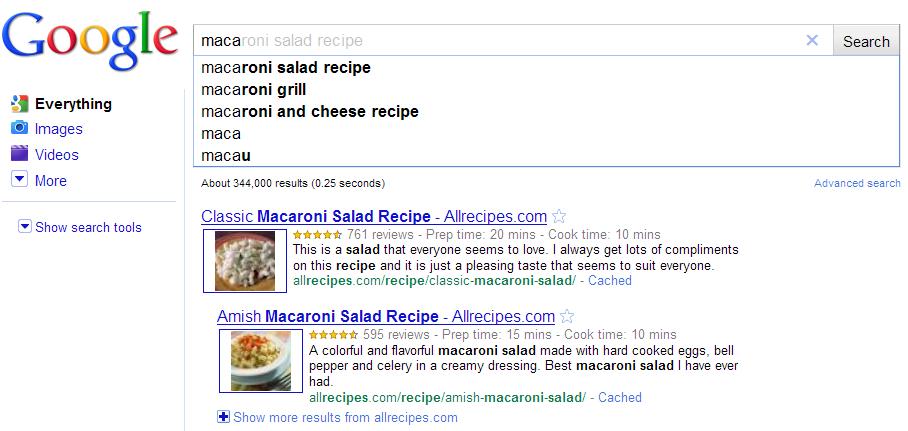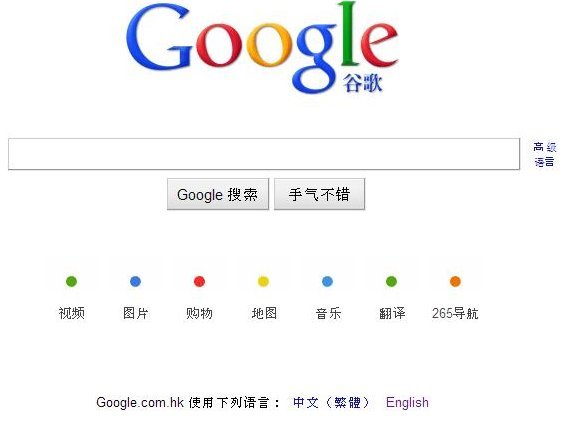Have you noticed anything different about searching Google lately? On September 8, 2010 Google announced the gradual rollout of Google Instant, an enhancement to its search engine. Google Instant speeds up search time by predicting possible search results while you are still in the process of typing in your search terms. If one of the predictions is what you are looking for, you can just click on that item in the list, without entering the remainder of your search. For example, if you’re searching for macaroni salad recipes, you need only type the first four letters “maca” into the Google search box, and “macaroni salad recipe” appears below the search box in a list of clickable links (see image below) along with search results. Google claims that Google Instant “can save 2-5 seconds per search.” You can find more information about Google Instant, including FAQs and a short video introduction, at http://www.google.com/instant/.

 A few months ago it looked like Google might abandon its business operations and Web presence in China, but the situation has changed dramatically.
A few months ago it looked like Google might abandon its business operations and Web presence in China, but the situation has changed dramatically.
Some brief background: A sophisticated cyber attack against Google’s technology infrastructure last January was launched from within China, and Google believed that the attack targeted Chinese human-rights activists. In response Google began automatically re-directing visitors from Google’s censored China search page to its uncensored Hong Kong version. Google even issued a strongly-worded statement threatening to close its business offices in China. Google has filtered its Chinese site’s search results since 2006 to comply with Chinese government mandates.
Unsurprisingly, China was not happy with Google’s new strategy. Google backpedalled somewhat last week by re-establishing Google.cn. Google now offers less controversial services like music search and text translate from its Chinese page along with a link to its Hong Kong page for regular searching. China accepted Google’s comprise approach when it renewed Google’s operating license today.
So what do you think of Google’s compromise? Is it better for Google to continue offering its services, albeit in a modified manner, or should Google have stuck to its guns?
 Google released the encrypted version of its search engine in beta on Friday, available at https://www.google.com. The SSL (Secure Sockets Layer) encryption protects your search query and search results while they are in transit between Google and your computer from third parties like ISPs (Internet Service Providers). SSL encryption does not protect your information from malware that may be running on your machine. The encryption only works for communications with Google, so it does not provide privacy when you click on a search result. Encrypted search does not yet work for Google Images or Google Maps, although SSL encryption has been in use by Gmail and Google Docs for some time. And though your information is protected from snoopy third parties, Google still knows and tracks the search terms you are entering and the results you are clicking.
Google released the encrypted version of its search engine in beta on Friday, available at https://www.google.com. The SSL (Secure Sockets Layer) encryption protects your search query and search results while they are in transit between Google and your computer from third parties like ISPs (Internet Service Providers). SSL encryption does not protect your information from malware that may be running on your machine. The encryption only works for communications with Google, so it does not provide privacy when you click on a search result. Encrypted search does not yet work for Google Images or Google Maps, although SSL encryption has been in use by Gmail and Google Docs for some time. And though your information is protected from snoopy third parties, Google still knows and tracks the search terms you are entering and the results you are clicking.



